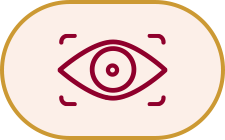Eye Disease Treatment & Additional Services
At Apex Optometry, we diagnose, treat, and manage various eye diseases and conditions. Since eye diseases usually don’t have noticeable symptoms, getting routine comprehensive eye exams is important.
In addition to the treatment and management of cataracts, glaucoma, macular degeneration, and diabetic retinopathy, we offer:
- Pediatric eye exams
- Adult & senior eye exams
- Diabetic eye exams
- Contact lens fittings
- Glasses and sunglasses fittings
- Sports and specialty eyewear fittings
- Dry eye treatment
- Low vision management
- Keratoconus management
- Digital eye strain management
- Myopia management
If you require one of the above services, contact us to book an appointment today.
Request AppointmentThe Importance of Early Detection & Management
Because many eye diseases and conditions lack warning signs, early detection and management are important in preventing vision loss. Early intervention can slow a disease’s progression and reduce complications.
Dr. Zak aims to identify issues early and provide treatment plans. If surgery is required or when dealing with advanced cases, he may refer you to an ophthalmologist within the community.
Our Technology
At Apex Optometry, we use modern technology to help us diagnose and manage eye disease. The images we take of your retina are stored in your file, which allows us to detect and measure any changes to your eye over time.
Digital imaging is noninvasive and painless, allowing for detailed images of the eye and its form and structure.
Digital Retinal Imaging
Digital retinal imaging allows for the evaluation of the retina, which is the back of the eye and includes the optic nerve. A digital camera captures a high-resolution picture of the back of your eye.
The image provides information on eye health and is stored in your file. It may be used in future examinations to determine if your eyes have changed.
GDx Scanning Laser Polarimetry
This laser helps us diagnose and treat glaucoma by measuring the thickness of the retinal nerve fiber. Thinning of the retinal nerve fiber layer may be correlated with glaucoma.
The GDx scanning laser may help monitor subtle changes associated with glaucoma progression. The exam generally lasts 5 to 10 minutes.
Visual Field Testing
Visual field testing measures peripheral vision or side field of vision. While keeping your head still and placing your chin on a chin rest, you’ll experience flashing lights. Whenever you notice a light flash, you’ll press a button.
Each eye is tested individually.
Common Eye Diseases & Conditions
Our eyes change as we age, and our risk of certain eye diseases and conditions may increase—however, regular, comprehensive eye exams aid in diagnosing, treating, and managing eye disease.
Early detection is important since many eye diseases don’t exhibit noticeable symptoms. We can help preserve your vision and eye health and manage the following common eye diseases and conditions.
If you are a person who is living with diabetes, you may be at an increased risk of eye disease. Diabetes can affect the retina’s blood vessels, which is the part of the eye that allows you to see.
Cataract Surgery Co-Management
Developing cataracts is a common side effect of aging and is common in those 55 and older. Symptoms may include:
- Double vision
- Sensitivity to light
- Trouble driving at night
- Blurry vision despite repeated blinking
- Needing additional light when reading at night
Cataract surgery is a common procedure for treating cataracts. During surgery, the cloudy lens is replaced with an artificial intraocular lens, which may help provide clear vision.
Glaucoma Testing & Treatment
Glaucoma can damage the eye’s optic nerve but doesn’t have noticeable symptoms. Glaucoma testing can help determine if you’re at risk of vision loss. The tests will check your internal eye pressure and examine the retina.
Treatment of glaucoma may involve:
- Eye drops
- Medication
- Surgery
These treatments aim to reduce or stabilize pressure in the eye by either decreasing the production of intraocular fluid or increasing the drainage of intraocular fluid, which may prevent damage to the eye.
Macular Degeneration
Currently, there is no cure for macular degeneration. Those over the age of 60 may be at an increased risk. Treatments may slow the progress of the disease or improve vision.
Treatments may include:
- Regular, comprehensive eye exams
- Prescription of zinc and antioxidants
- Laser surgery
- Injection of light-activated dyes into the circulatory system
- Injection of drugs into the eye that may prevent abnormal blood vessel growth
Macular degeneration can affect people differently. Some may lose their vision rapidly, while others may gradually.
Diabetic Retinopathy
For people living with diabetes, diabetic retinopathy may be caused by uncontrolled blood sugar, high blood pressure, or high cholesterol, or may worsen in pregnancy.
Diabetic retinopathy causes changes in the retina, such as bleeding, swelling, and abnormal blood vessel growth.
Treatments may include:
-
- Vitrectomy, where the eye’s inner gel is replaced
- Laser surgery
Diabetic retinopathy may not present noticeable symptoms and may cause permanent vision loss if left untreated.
Book an Appointment
Diagnosing and managing eye disease is important in preserving your vision and health. Contact us to schedule an appointment today.
Request AppointmentOur Location

Our Address
- 462 Main Street
- Penticton, BC V2A 5C5
Contact Information
- Phone: 250-493-2552
- Email: [email protected]
Our Hours
Hours
- Monday: 8:00 AM – 5:30 PM
- Tuesday: 8:00 AM – 5:30 PM
- Wednesday: 9:00 AM – 5:30 PM
- Thursday: 8:00 AM – 5:30 PM
- Friday: Closed
- Saturday: Closed
- Sunday: Closed
Our Brands














